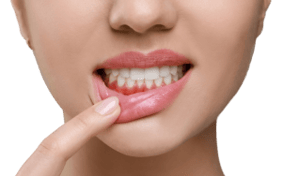
Act Early With Expert Melbourne Gum Disease Treatment
If something doesn’t feel right in your mouth - aches and pains, smells, discolouration - it could be gum disease. But don’t worry, periodontal issues are very treatable with good care from an expert team. That’s where Mulgrave Dental Group comes in!
- Services
- >
- General Dentistry
- >
- Gum Disease Treatment

Gum Disease Symptoms
Gum disease (aka periodontitis or gingivitis) is not an issue that pops up overnight. You may find that your symptoms start small and grow over time, and if we can catch those symptoms early, we can intervene to prevent the issue from getting worse.
Common symptoms of gum disease include:
- Swollen or puffy gums
- Consistent dry mouth
- Bleeding gums
- Tender gums
- Bright red or purple gums
- Consistent bad breath (halitosis)
- Pus between your teeth and gums
- Blood consistently present when you brush or floss
Of course, minor bleeding, bad breath and dry mouth may not always be signs that you’re developing gingivitis - often, these are totally normal. If you notice that your symptoms persist for more than a few days, or you’re feeling generally anxious about your oral health, don’t wait. Come in to see our friendly team at Mulgrave Dental Group and we’ll help you solve the mystery.
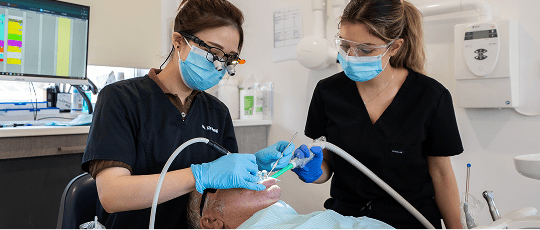
Common Gum Disease Treatment Options
The great news is, gum disease is very treatable - and it’s never too late to stop a problem from getting worse! The sooner we can get on top of your oral health, the sooner we can find out what’s causing your trouble and recommend a tailored solution.
Scaling and root planing are common professional cleaning techniques that we use to remove harmful bacteria from your mouth.
Scaling removes plaque and tartar from the surfaces of your teeth and under your gums, and it’s very simple. We’ll use a variety of tools to get all the bad stuff off, and you should find the procedure very simple, quick and non-scary.
We also use EMS GBT (Guided Biofilm Therapy) advanced teeth cleaning technology to deliver the best results with the highest comfort.
And what about root planing? It’s much the same, but for the roots of your teeth instead.
There’s a reason everyone talks about the benefits of brushing and flossing, because they’re very powerful techniques for preventing gum disease!
Brushing and flossing twice a day helps to keep bacteria down in the mouth, disrupting its growth and reducing the risk that plaque and tartar will form. This alone is an incredibly powerful method of preventing bigger issues from forming.
During your next dental check-up, ask your friendly dental hygienist if antimicrobial mouthwash would be suitable to help treat your gum disease, and if so, which brand.
In some cases, mouthwash may help to keep your mouth clean and prevent the growth of bacteria. But, in other cases it might be unnecessary. We'll help you figure out if it’s right for you.
Eating well can contribute to your oral health. A diet rich in fruits, veggies and whole grains helps to provide all the nutrients and minerals your body needs to fight bacteria and heal quickly. Meanwhile, try to steer clear of processed food and drink full of acid or sugar, as these can damage your enamel and feed bacteria in your mouth.
Smoking, including vaping, is a major contributor to gum disease, among other health problems. If you smoke, consider quitting or reducing your consumption as much as you can.
People who smoke are generally considered a much higher risk for major oral health problems, like gum disease, tooth loss, surgical complications and oral cancer.
During the course of your gum disease treatment we may prescribe a course of antibiotics to help fight infection and reduce the severity of your symptoms.
This can help us minimise your existing symptoms, and clear surface-level problems to make it easier to find the root cause of your issues - so we can treat those instead.
Soft tissue grafts sound intimidating, but it’s actually relatively simple and a common way to treat receding gum lines resulting from periodontal disease. Here, we can cover exposed roots and add to the volume of your gums, replacing lost tissue and shrinking the risk of further harm.
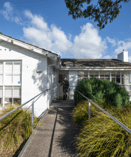
Our clinic hours:
- Mon: 9 am - 6 pm
- Tue: 9 am - 7 pm
- Wed: 9 am - 7 pm
- Thu: 9 am - 7 pm
- Fri: 9 am - 5 pm
- Sat: Closed
- Sun: Closed
Any Questions?
Don’t let uncertainty put you off getting the treatment you need. We’re here to help.
At Mulgrave Dental Group, you’re our priority. We offer an array of modern dental and oral hygiene services along with exceptional customer service in a warm, relaxed atmosphere. We have well over 50 years of collective experience, so please don’t hesitate to get in touch if you need us.
Contact us today to schedule your consultation and take the first step towards a straighter, happier smile.
What Sets Mulgrave Dental Group Apart?
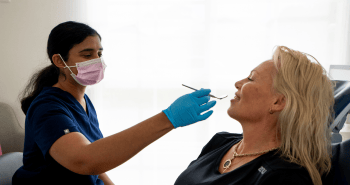
Comprehensive, Personalised Care
We understand that gum disease affects everyone differently. Our experienced team takes the time to assess your gum health thoroughly and tailor a treatment plan that suits your specific needs and stage of gum disease.
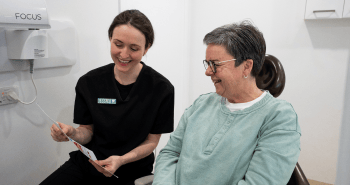
Focus on Prevention and Long-Term Health
Our goal isn't just to treat the symptoms - we aim to stop gum disease at its source and prevent it from returning. We equip you with the knowledge, tools, and support you need to maintain healthy gums for life.
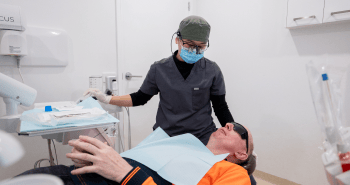
Gentle, Modern Techniques
Your comfort matters to us. We use the latest gentle techniques and technologies to make gum disease treatment as effective, minimally invasive, and pain-free as possible, ensuring you feel relaxed and confident every step of the way.
Take Control of Your Oral Health
Healthy gums are essential for a healthy smile. Our experienced team uses advanced techniques to diagnose, treat and manage gum disease, helping you feel comfortable, safe, and well cared for at every visit.
Trust Mulgrave Dental Group to deliver expert periodontal care with a warm, personal touch. Contact us today to schedule your consultation and take the first step today.
How to Contact Us
Mulgrave Dental Group is located only 20 minutes from Melbourne CBD, just off Wellington Road. Come visit our office at 47 Wanda Street, Mulgrave, 3170 Victoria.
Call us on: 03 9562 5156
Email: reception@mulgravedentalgroup.com.au
Ready to get started? Book your dental appointment with our team today
Explore Other Dental Services
We use terms like ‘gum disease’ and ‘periodontitis’, but these issues can cause quite a few different symptoms that may require alternative treatment. Depending on the extent of your oral health issues and your specific needs, we may advise some alternatives.

Dental Check Up
A regular dental check-up is essential for the long-term care of your oral health. By visiting the dentist at least once a year, if not more frequently, your dentist will be able to spot problems before they develop - and intervene.

Scale & Clean
Scaling and cleaning, aka dental cleaning, is the use of specialist dental hygiene tools to thoroughly clean plaque and tartar from your mouth which you can’t tackle at home.
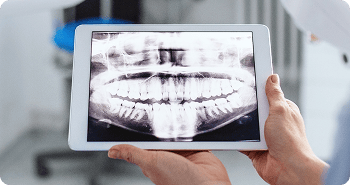
Dental X-Ray
Dental X-rays are used to capture detailed snapshots of the underlying oral structures of your mouth - giving us an invaluable glimpse at what’s going on under the surface.